Nia Michellis
"I look at the toys in a very different way to the parents. The parents look at the toys and think, ‘this is for my child to play’. I see it as a perfect opportunity to build their language skills or their verbs or their speech sound."
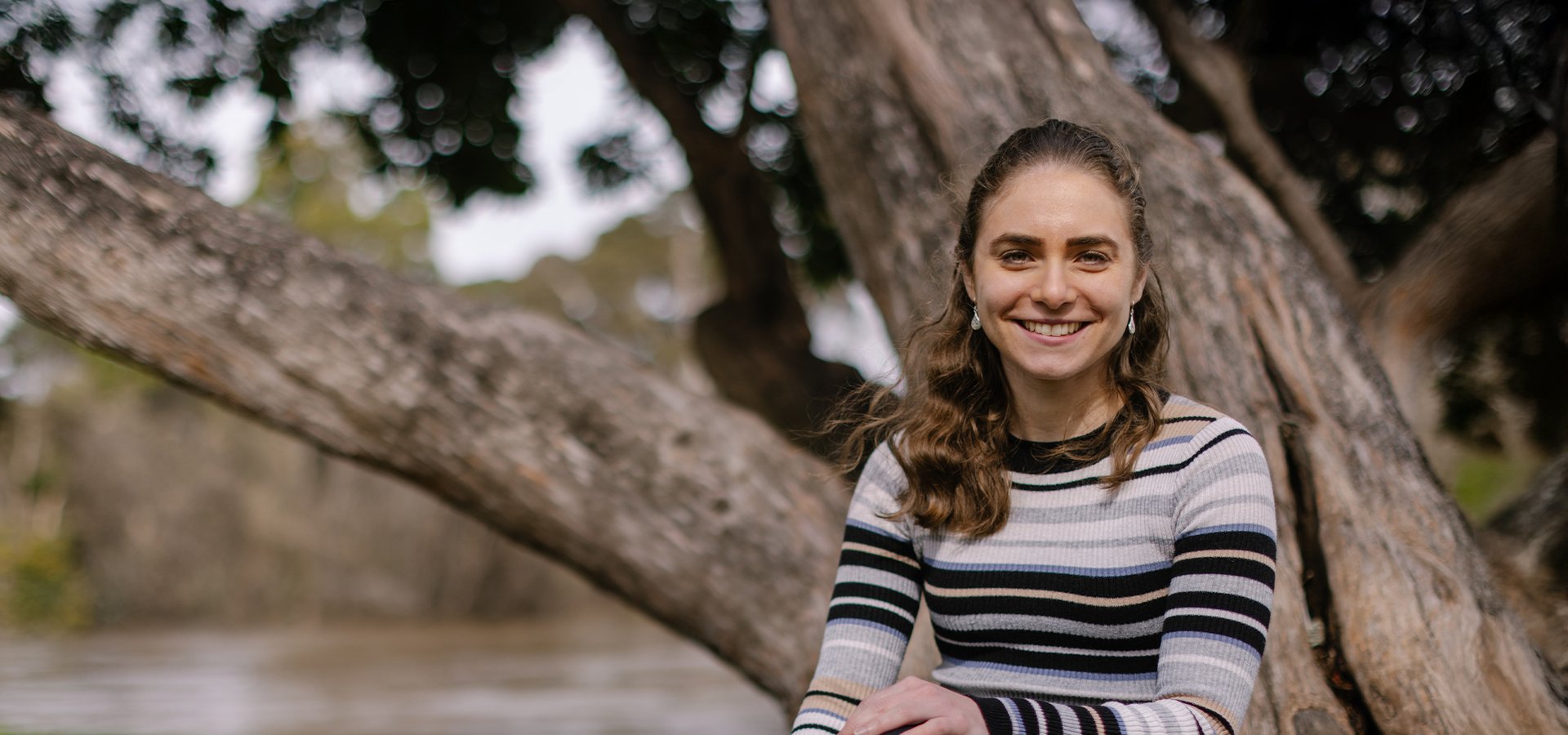
"If I can use social media as a tool to help these families who can’t afford speech therapy, who are on waitlists, then I’m doing good in the world."
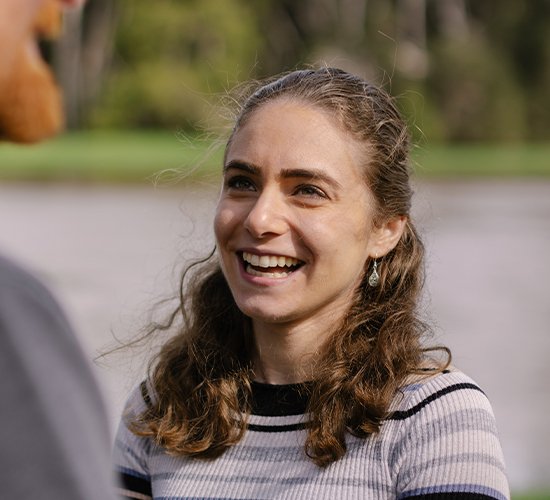
In a cosy little studio tucked away in North West Tasmania, something special is happening.
Young children with speech challenges are saying words correctly for the first time.
Evyenia (Nia) Michellis is the brains behind Keys to Communicate Speech Pathology, her own private practice. Nia’s passion and tireless work ethic have made her a local favourite, so much so that checking her waitlist is like opening a cartoon scroll, the length unravelling endlessly across the floor.
Originally from Brisbane, Nia knew from a young age that helping others was her calling. She remembers helping her cousin, who was experiencing hearing loss, with trouble saying her ‘s’ sounds. Nia is one of those people who seem made for their job, and she was unknowingly practising what would become her future career. “I had no idea what I was doing,” she says, “but I’d sit there and do her homework with her.”
Later, when she was a teenager, Nia did work experience with her mum’s friend, who was a speech pathologist. Combining her drive to help others with her love of speech, drama, and singing, Nia quickly realised speech pathology would be her career goal. She went through university, did her honours, and wrote her thesis on children’s language.
Nia went to Vietnam for a university placement – a formative experience for her. “We went into orphanages over there and tried to build on our skills around communication,” she says. Despite not speaking any Vietnamese, she worked with the staff on what cues to look for in children with communication challenges. “It was eye-opening to see how much of a positive impact we could have despite not speaking the language,” Nia says. “It helped show that we can communicate in so many different ways.”
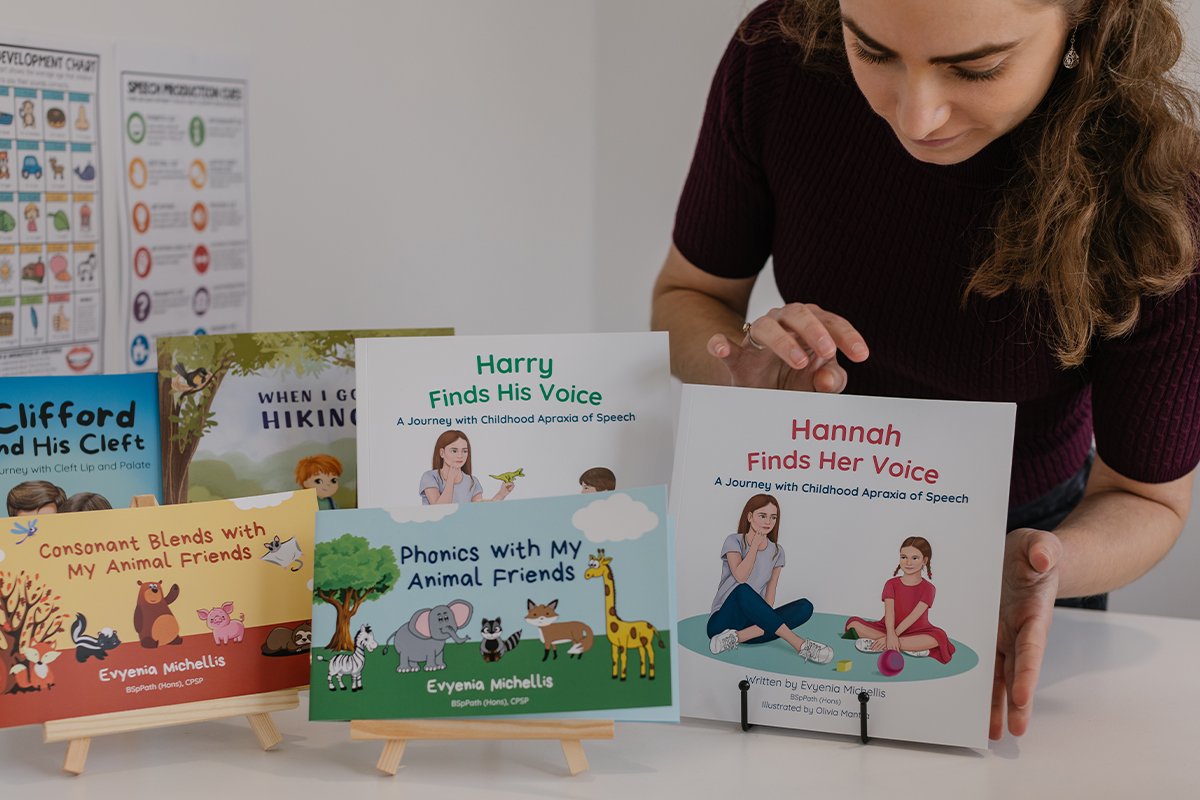
The more that I see these kids, the more that I know that’s what I love, helping these kids to talk.
Eager for more, Nia came to Tasmania – not for the lifestyle or the natural beauty, but for a job. A friend of hers was applying for jobs in the Tasmanian Health Service, and Nia’s ears perked up. The position would give her the chance to work with both children and adults, just the variety she was looking for. “I’m a bit of an overachiever, a bit of a perfectionist, so I was like, hospital job it is,” she laughs.
Nia didn’t know a soul in Tasmania. She didn’t even know what Cradle Mountain was. Yet, once she got the job she applied for, she came anyway, moving to Devonport. It was an essential experience. “For your first job, don’t go into private practice,” she says. “Work in a hospital. Learn the skills of a busy environment where you can see adults and kids and work out your niche from there.”
Now, Nia is a certified practising speech pathologist and a self-published author. She started her private practice in 2022, where she helps children with speech, language, and literacy difficulties, and supports parents to build a language-rich environment for their children. Her special interest area is childhood apraxia of speech (CAS), a rare speech disorder that makes it difficult for children to say sounds, words, and syllables.
“Children know that they want to say a word, for example ‘up’, but when they go to say it, it doesn’t come out. That’s childhood apraxia of speech,” Nia says. “That’s my passion.” CAS affects one to two in 1,000 people, so many speech pathologists don’t feel comfortable treating it. Nia saw that there was a gap in the North West, so that’s where she decided to base herself. “The more that I see these kids, the more that I know that’s what I love, helping these kids to talk,” she says.
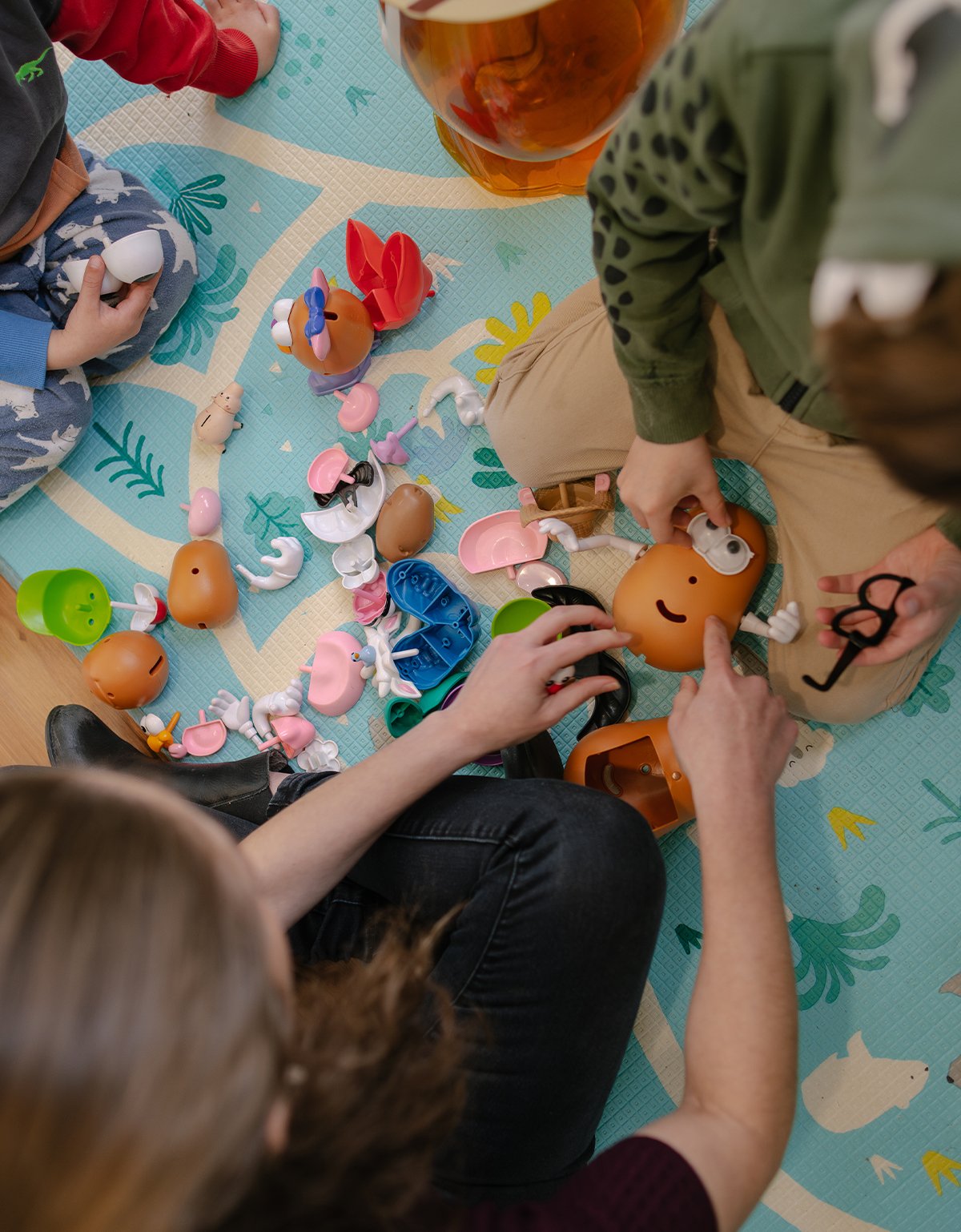
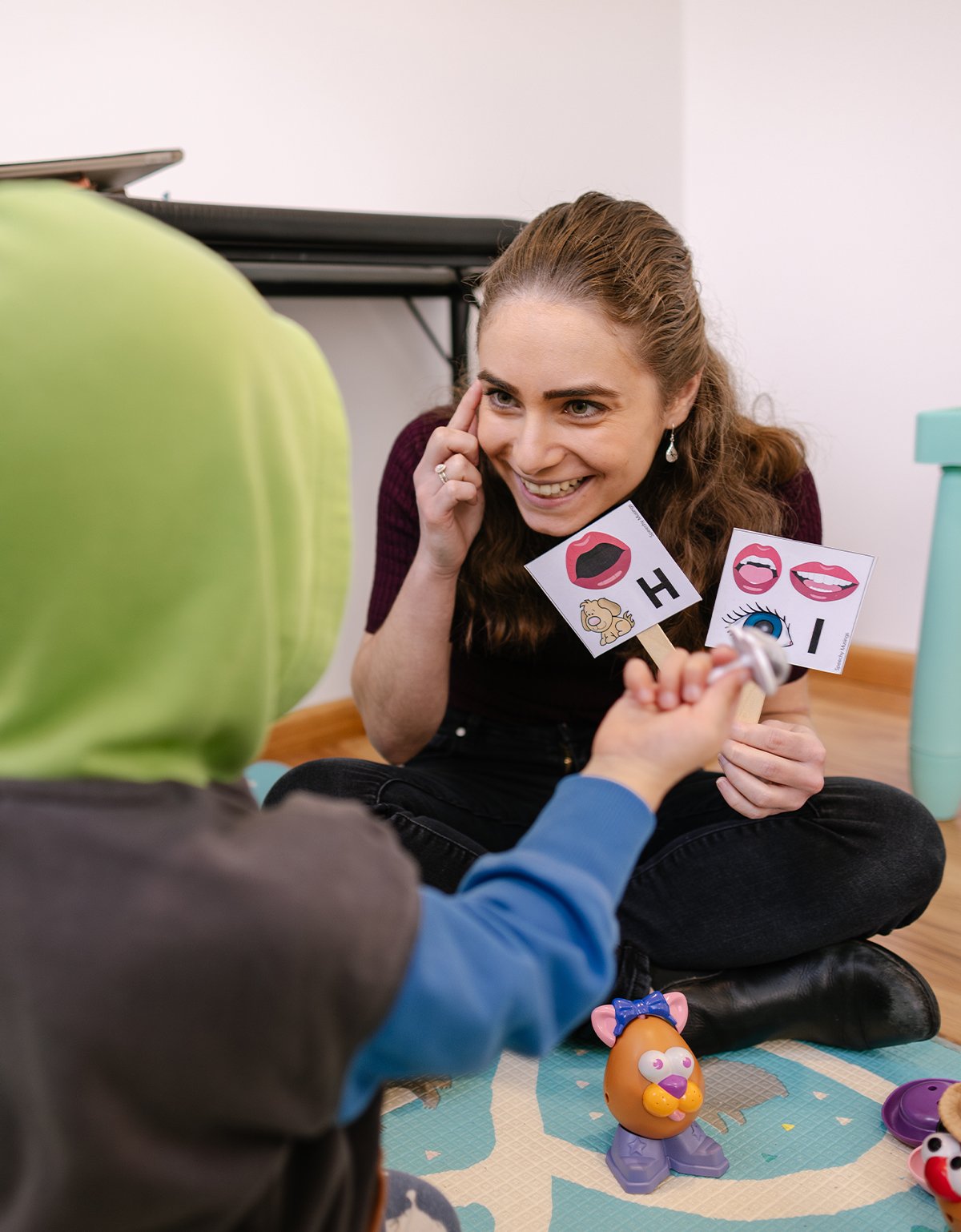
Speech pathology is about communication, whether it’s understanding and using words, developing speech sounds, singing, or even swallowing. Everything from the neck up can encompass speech pathology, Nia explains. Communication starts with an idea, which becomes a word or words, and then the words convert to speech and sounds. And that can break down at any point, which is where a speech pathologist comes in.
Nia likes to work with children up to the age of five because that’s when their brains are most malleable, when there's the most chance to make change. “I’m very passionate about early intervention,” she says. “I get them when they’re early, when they’ve got the most chance of improving and they’ve got the family around them who are motivated to help them.” The stakes are high if early intervention doesn’t happen. Children who struggle to communicate often find it hard to connect with others, leaving them isolated and frustrated.
Nia aims to empower parents with the tools they need to help their kids. “Parents are living this life where they can’t communicate with their child,” she says. “They just want connection. They just want some help.” That’s where Nia steps in - working side by side with parents and care teams to make sure everyone’s on the same page. Even though Nia runs her private practice solo, she never feels alone. “I don’t feel isolated one bit,” she says. “I’m so passionate about helping the kids and liaising with their team. Otherwise, if we’re all just separate pieces of the puzzle and none of us communicate, this child is never going to have good continuity of care.”
One of the ways Nia goes above and beyond is by doing home visits. This not only helps parents save on travel time and expenses but also gives Nia a chance to show them how to use everyday resources to support their child’s development. “I look at the toys in a very different way to the parents. The parents look at the toys and think, ‘this is for my child to play’. I see it as a perfect opportunity to build their language skills or their verbs or their speech sound.”
It’s all about making the most of what families already have. Toys, books, everyday moments, like brushing teeth and bathing. Turning the ordinary into something that helps kids develop language, fine motor skills, and social interactions, all while keeping the fun alive. Nia recommends parents get the free toys that come with takeaway meals and grocery shopping or go to the library for free resources and books. Sometimes, when a child responds very well to one of Nia’s toys, she’ll look into where to get a cheap one. “I’m just very mindful,” she says. “Especially now with the cost of living, families really are struggling. So, I’m working on their speech and language in everyday tasks.”
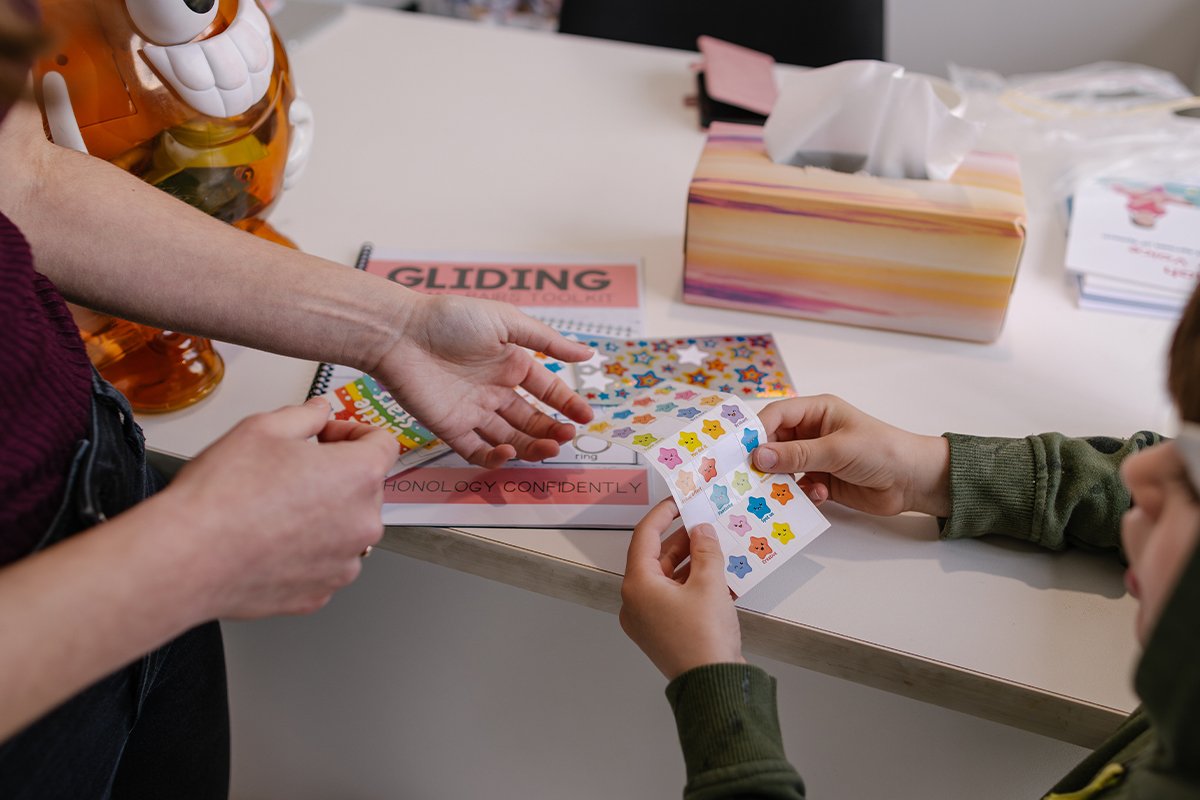
Nia will say to the parents, “Your child needs to work on the ‘sh’ sound. Every time you go to the shop, I want you to get them to say the word ‘shop’ 10 times. Every time you get in the shower, have them say ‘shower’.”
It requires a team of people in the child’s life to work together, so sometimes if parents are busy, Nia will go to the grandparents’ homes for session. “It’s a perfect opportunity to upskill the grandparents,” she says.
Nia’s commitment to helping as many families as possible extends to her social media page and website, where she shares free resources to help those who can’t access speech pathology appointments. “If I can use social media as a tool to help these families who can’t afford speech therapy, who are on waitlists, then I’m doing good in the world,” she says. As long as it's helping at least one person, it is worth it to Nia. She has even written books which are designed to help kids with language and sounds.
“I don't do speech pathology for the money. I don't do it for the lifestyle – I’m in here until 10pm most nights and writing books on my other nights. I do it because I’m passionate and I want to help the kids.”
So how does Nia manage to do all that she does? “I like to think that the kids give me energy,” she says, smiling. “I'm exhausted every day, but the kids keep me going, because I know that I need to put in 100%.”
Working in the North West of Tasmania allows Nia to give the best possible care she can. “I love the small community. I love helping kids whose parents you get to know,” she says. It’s a far cry from her days in Queensland. “In Brisbane, there's no way I’d be able to do home visits to help the families. Because an hour for me to get to Wynyard would be like two hours to get to the Gold Coast. I feel like I’m making a huge difference here.”
“If I’m going to be a speech pathologist, helping families on the North West Coast is where I’d rather be.”
We worked with southern Tasmanian writer Peter Burt and north west Tasmanian photographers Moon Cheese Studio for this Tasmanian story.